|
Here are the top things to know before moving to Reno, NV, for all those planning to make it their new home. Have you ever heard of the biggest little city in the world? We are talking about Reno, Nevada, a place in the northwest part of the United States of America. Whether for its incredible landscape, dynamic lifestyle, proximity to San Francisco, or the everlasting fun this city promises, Reno has been one of the most popular places over the years for both visitors and newcomers. So, if you have heard these amazing facts and are planning to come there for good, here are several things to know before moving to Reno, NV. A few words about living costs One of the most important things everyone would like to know when buying a home in the Reno city area is how much money they would need for a living. Well, truth to speak, Reno, Nevada, is not the most affordable place in the world. It is among the most expensive ones. An average family needs approximately $80,000 a month to have a decent life. Although living in Reno is cheaper than living in San Francisco or New York, it is still in the high 21st position among the most expensive cities in the country. Its living costs are about 8% higher than the national average. The real estate market Low property taxes, and generally high incomes, make Reno one of the top three places in the USA where people wish to buy a home. There are neighborhoods for everyone. Starting from the ones hidden in the peacefulness of a forest area to those situated in the center of busy city life. Furthermore, since the number of buyers in the real estate market has grown, the available offers have decreased in the past several years. What's more, homes that are still in the game have pretty high prices. Still, some researchers have shown that shortly, the price growth will slow down for a little bit. That is why this may be the right time to invest in a house in Reno, one of the most wanted real estate in the USA. And when the moment of relocation comes, as the experts from familyaffairmoving.com would say, all you need is a group of experienced movers, and everything will be done in no time. Finding jobs The job market in the city of Reno is in constant growth. Their industries are expanding, and the offer is diverse. Some of the most developed industries in recent years are technology and healthcare. The number of opportunities is growing, while taxes are still pretty low. So, if you are moving to Reno to find a new job, you are one among the many. The weather- one of the things to Know Before Moving to Reno, NV In Reno, you'll have a chance to meet all four seasons. All over the year, they have a mixture of great hot summers, pleasant springs and autumns, and beautiful snowy winters. You'll see rain, snow, sun, strong winds, and even thunderstorms. Although the temperatures in the hottest and the coldest months can vary, they never go below 23°F in winter or 89.6°F in summer. So, if you are among those who are moving to Reno from California for work, get ready to pack some warm clothes, too. You are going to experience some real winter weather with all its charms. And when it comes to preparing your household for the move, experts can pack in no time since packing services in California are more than excellent. The town's atmosphere
When we say small-town atmosphere, we mean precisely that. One of the things to know before moving to Reno, NV, is that their people cherish a strong sense of community. Naturally, everyone knows their neighbors. Even if they are newcomers, it's only a question of time before someone will knock on their door and help them blend into the city's community and life. That is one of the reasons why Reno is a perfect moving destination for families. In this city, you will find numerous great family-friendly parks that can offer entertaining outdoor activities for kids and adults. And when it comes to traffic, traffic jams will be your past since people in Reno rarely sit and wait in their cars for more than a few minutes. Education When we talk about schools you can find in Reno, there are many options. Reno's education system is strong. Some of the best public schools in Nevada are in Reno. On the other hand, when it comes to higher education, Reno residents can boast of being a college city. Apart from the Truckee Meadows Community College in this city, there is also a four-year public University of Nevada Reno. The crime rate in Reno, NV Since safety is one of the top priorities among the residents of any city, especially if they have children, it is good to mention that Reno is not considered the safest place in the world. However, although the crime rate is above the national average, not all neighborhoods have the same crime rate. The Reno residents prefer living in the southwest part of the city since they claim it to be the safest one. Still, you should remember that there is no perfectly safe place in the world. So, all you need to do is to get informed about the crime rate in the area of the city you would like to live in. Entertainment Well, entertainment is the word that best describes life in Reno, NV. This is the city where the fun never stops.
Concerned about water damage on your rental property? Read our list of 7 tips for preventing water damage in your rental home now! Water damage is a serious problem across many US homes, causing billions of dollars' worth of damage every year. The reason that water damage is so prevalent is that every home has running water. To make things worse, water leaks are very hard to detect before more extensive damage is already done. Untreated water leaks are especially harmful in rental properties, as they can seriously affect the investment and livelihood of the landlord and property manager. So, to help you avoid issues with your rental property, we have put together a list of 7 tips for preventing water damage in your rental home. 1. Inspect plumbing yearly or biannually The best way to deal with plumbing issues is to catch them before they become more severe. As such, inspections are essential to preventing water damage in your rental home. After all, most leaks and old pipes have warning signs before they burst and start flooding. So, the only way to miss them is to neglect regular inspections. Or, if you are doing regular inspections, they aren't thorough enough to spot the problem. Make sure to hire experts, or if you're doing the check yourself, make sure you know what you're looking for. And while we're on the topic, you should know the difference between normal wear and tear vs property damage. We recommend that you perform these checks yearly, but biannually can also work. 2. Inspect the roof, chimney and attic It can be easy to focus solely on the water damage inside a home. However, water damage can just as easily come from outside, especially in states with a lot of rain. Regular checks of your roof, attic and chimney can reveal wear and tear, which can quickly evolve into more severe issues. You should do this check biannually; however, we recommend inspecting the outside of your home after every heavy rainfall or snow. Additionally, if you're someone who's moving into a rental property, experts from heartmoving.us recommend doing a check as soon as you move in to make sure. After all, you don't want the damage to be blamed on you, so prevention is in your best interest too. Landlords are advised to perform a move-in inspection and note all pre-existing damage on a checklist. 3. Regularly clean and maintain gutters Another common source of water damage is the home's gutters. After all, the point of gutters is to direct water away from the house, which is a good thing. However, when they're not cleaned or get damaged, gutters can have the exact opposite effect, and they can retain water. If water gets stuck in your gutters, it can cause severe damage to your roof in the long run. As such, after every heavy rainfall, or every few months, you should ensure the gutters are cleaned and well maintained. Remember, the most common issues of this problem are ice damming and gathered debris. As a tenant, you can easily do a check yourself, but be careful not to damage the gutters yourself while checking. As for property owners, remember that keeping the property well maintained is an excellent way to make your property more attractive to renters. 4. Insulate the pipes Even if your tenants take excellent care of the pipes in your property, or if you give them guidelines on how to do it, problems can still happen. As such, installing pipe insulation is the best way of preventing water damage in your rental property. Sure, this isn't the cheapest thing to do, but the price of having the insulation installed is tiny compared to how much you'd have to pay to replace burst pipes. As for tenants, always be careful how you use water fixtures around the home. The tiniest mistake can lead to serious consequences. And if you're planning to move out of a rental property, especially when it comes to apartments, you want to make sure you leave everything spotless when moving out. Landlords should talk to their tenants and remind them that they will perform a move-out inspection, so everything needs to be in order. 5. Maintain basement drainage If your property has a basement, it's crucial to ensure no water gets stuck in it. It's easy for the basement to flood and for that to go completely unnoticed. However, fixing a basement flood isn't as easy as solving other problems around the house. So, making sure the drainage system is working properly is quite important. Regular checks on the drainage system, preferably every few months, should help you prevent water damage in the basement. Also, if the basement is used to store belongings, this becomes ever more important. The last thing you want is to go into your basement and find everything you kept there to be drenched. However, it would help if you also considered how a property manager can benefit from a storage solution. 6. Use a catch basin
Some properties can have issues with water gathering around the base. A good solution, in this case, is to install a catch basin, which will ensure no water gathers around the home's base. A catch basin will effectively redirect the water from the basement and foundation, thus preventing structural damage. 7. Install a sump pump An excellent way to make sure there's no water building up in your basement is to use a sump pump. Essentially, any water which might otherwise gather in the basement will drain into the sump pit, which you can later pump out a distance away from the house. However, keep in mind that sump pumps must also be maintained regularly to work properly. Closing thoughts Water damage is one of the common issues in properties all across the US. However, avoiding this kind of damage is very important for rental properties, as the damage can seriously lower the property's value and the landlord's investment. So, it's imperative to do your best to prevent it both as a tenant and a manager. Fortunately, most ways to do this are straightforward, only needing regular checks to ensure problems don't become serious or stop them outright. We hope this list of 7 tips for preventing water damage in your rental home helps you avoid water damage, and we wish you a great rest of your day. Photo Credits: Pexels Pexels Pexels Pexels With age come issues. That's just how it is, in life in general. However, it also applies to properties. You can expect that the place you once rented out to tenants won't end up looking the same following their departure. Minor repairs are invariably required, even if the property has been regularly taken care of. Damages, however, should in no way be a part of the deal. Still, you may be struggling to determine what's considered a sign of aging and what occurred due to tenant negligence. Lucky enough, we've taken the time to point out the difference between normal wear and tear vs. property damage. Once you've determined what case your rental is falling into, you'll be able to act accordingly.
Normal Wear and Tear vs. Property Damage: The Difference and the GiveawaysThe majority of state laws suggest that your tenants aren't liable for the wear and tear that occurs due to everyday use. They are, however, held accountable for any damage that's a result of their carelessness. This could easily end up costing them their security deposit, at the very least. A notice to vacate and eviction are not off the table, either. What Is Considered "Normal Wear and Tear"? Issues caused by daily use and can't be avoided typically fall into the regular wear and tear category. Everything has a life span, and when someone's living on the premises long enough, certain things will require upgrading - or even full-on replacing after some time. The typical examples of normal deterioration are:
What Is Considered "Damage"? While there's little to be done about wear and tear, damage, however, is undoubtedly preventable. It's the result of none other than absolute negligence or even misuse. It's often expensive to deal with, causing extreme losses for property owners, and thus, it might even earn tenants an eviction notice. At times, damage can occur after tenants' departure, or rather, during their moving process. In most cases, the professional movers are in charge of relocations. When damages result from their work, it might be possible to get compensated if the company has general liability insurance. It's important to react on time - have the previous residents file a claim as soon as you've noticed the problem. Identifying damage is difficult but not impossible. Here are a couple of examples:
How to Care For Your Rental Property and Address Damage? Now that you are familiar with the notion of normal wear and tear vs. damage, it's time to discuss caring for a property. It's necessary to stay on top of the maintenance, as, down the line, it might prevent things from going south. Or, at the very least, it might prevent things from deteriorating any further. The first step towards ensuring your property remains in the best condition possible is to screen the tenants before they sign a lease. Tenant frauds aren't uncommon, so taking an extra measure to protect your rental is absolutely warranted. Create a Maintenance Plan It's essential to keep up with regular maintenance while the tenants live on the premises. Talk to them about creating a maintenance plan. Have them inform you of anything that requires addressing promptly. If, for instance, appliances are reaching the end of their lifespan, replace them with new ones. Have the HVAC regularly maintained, as well. If you can't physically keep up with these tasks for whatever reason, it might be a smart idea to hire a property manager. They can keep in touch with your tenants. Furthermore, handling maintenance requests is what they excel at. Have the Place Inspected Properly We recommend documenting the condition of your rental both before the tenants' arrival and after their departure. Create an inspection checklist that a series of photos should preferably accompany. That way, should any issues occur, you'll have the necessary proof to handle them in an appropriate manner. Also, you could have future occupiers sign the checklist, too, for added protection. Create a List of Charges Hopefully, no damage has occurred on the premises. But if it has, once you have done a walkthrough of the property or had somebody professionally inspect the place, it's crucial to create a charge list to be sent to the previous renters. The list should include all damages explained in detail, along with the costs of repair. As an owner, you are required by law to send the list if the plan is to withhold the security deposit. Depending on the damage score, tenants could expect to lose either a part of their deposit or their entire deposit. If you aren't quite sure about the costs of repair/replacement, it's necessary to contact someone capable of giving you an estimate. That someone may be a cleaner or a contractor. If it's the furniture or appliances that have suffered in the process, then calculate how much it will cost you to replace them. The security deposit might not be able to cover the costs. In that case, you could take the case to court to get matters settled. Alternatively, mediation might help resolve the dispute. Normal wear and tear vs. property damage – what is it and who's to blame? Hopefully, you'll have managed to determine normal wear and tear vs. property damage difference by now. While there's not much to be done but tackle repairs yourself in the first case, the law is undoubtedly on your side as far as the second is concerned. Buying an investment property in Nevada is a financially wise decision. And not only because it's a valuable asset that can provide you with a significant passive income. On top of that, it can be a stress-free occupation. You can run a rental business any way that suits you. However, to ensure everything goes smoothly, it's better to choose the location carefully. Both local and long-distance landlords face different challenges and enjoy different benefits. Before you decide, it's best to consider both options. With that in mind, we've decided to examine both possibilities and help you make the right choice. So, local vs. long-distance investing: which is better for Nevada landlords? How to make the right decision? Firstly, before you start searching for the right property, you need to ask yourself a few questions. Knowing the answers will help you make up your mind and make a sound decision. So, ask yourself the following questions:
So, what are your financial goals? Do you want to get out of debt, gain independence, or accumulate wealth? To answer this question, you need to first assess your current finances. Then visualize where you want to be in the next five, ten, or twenty years. Knowing this will help you focus your investing in the right direction. Choose the right market Next, you need to decide on the right market. For example, you might want to have a high rent-to-value ratio. In that case, you should choose a cash-flow market that will provide you with valuable income. Or, if generating the cash flow isn't your priority, you might want to choose a market with a potential for long-term appreciation. Lastly, hybrid markets offer a mix of both options. Of course, what you decide on depends on your long-term goals. Self-management or using property management? To determine your real estate strategy, you need to answer this question. Maintaining the property and dealing with tenants can be pretty overwhelming at times. From the potential renovation of the property to tenants losing their keys for the n-th time, self-managing demands a lot of effort and work. However, some landowners prefer to be in charge and gladly take on these responsibilities. If that is the case with you, there is no dilemma. In local vs. long-distance, local investment property is a clear winner. On the other hand, if you'd rather hire a third party to manage your property, both options may work for you. In that case, the key is to find an experienced property management company you can rely on. Whether you choose a local or long-distance property, you'll be able to save both time and effort while they manage your rental business for you. Local investment property Now, let's have a closer look at what you can expect from buying a local investment property. Familiarity with the market The first and most obvious advantage is that you're more likely to be familiar with the market when you're investing locally. Every local market is unique, and knowing little flows and trends can help you invest in the right property. You'll know all the local attractions and amenities that are likely to attract tenants. However, doing proper research is still a must. You'll have more control This is crucial for many landlords in the local vs. long-distance dilemma. While it's not impossible to manage your property long-distance by yourself, it's certainly more demanding. On the other hand, you can choose a more hands-on approach as a local landlord. For example, you can meet with your tenants when necessary, show your property in person, and perform an inspection of the property. You can hire local contractors when necessary When you delve into investing in real estate, you're bound to need contractors at some point. Whether you want to remodel that fixer-upper or need some repairs, finding the right contractors locally is much more manageable. Firstly, you can choose them yourself and ensure they're suitable for the task. Secondly, they're less likely to try and take advantage of your absence. Long-distance investment property
However, long-distance investments also come with their own set of advantages and drawbacks. Let's have a proper look. A wider range of investment opportunities Depending on where you live, your local market might not be able to offer you what you want. What if you need cash flow but live in an appreciation market? On the other hand, if you don't limit yourself, you can opt for a more profitable market with a higher return on investment. If you find the right property in other parts of Nevada, you might even want to relocate there! If the business proves very lucrative, this might be an excellent idea. However, if you want to live nearby, ensure you plan your long-distance relocation with care. From packing your belongings to hiring trustworthy movers - many tasks will require your attention! Use a property management company Of course, you can do this on a local level, too. However, limiting yourself may lead to losing some excellent opportunities. And if you plan to hire property managers in either case, a long-distance investment can be a better choice. There are many reasons to hire property managers! Although it may seem a more expensive option at first, it can save you money in the long run. Especially if you don't have a lot of experience - they'll ensure your tenants are satisfied and your property in good condition. You can use your property for a variety of purposes While your goal is mainly to rent your property to tenants, you can also use it as a vacation home in between. Or, your kids can use it when they start college - no accommodation worries! And lastly, you might choose to relocate or retire there someday. The bottom line As you may see, there are many things landlords should consider when it comes to local vs. long-distance investing. Both options come with their unique advantages and issues. However, once you know your long-term goals and preferences, you'll be able to make the right choice. Meta description: Buying the right investment property is not an easy task. Find out which is better for landlords - local vs. long-distance investing! There are many reasons why someone would consider hiring a property manager. There are also many reasons why people rent storage. Both of these options come with numerous benefits. However, not many people consider that a property manager can benefit from a storage solution, too. To understand how, we will first go over why people hire property management services and how property owners take advantage of self-storage options. Why hire property management services?Owning a rental property comes with many responsibilities. Sometimes, property owners don't have sufficient time to handle them all themselves due to their work and family obligations. Moreover, if they own multiple rental properties, managing them all successfully becomes downright impossible. Here are some of the most significant benefits of hiring a property manager:
Why rent a storage unit? Renting storage is most often a solution to the lack of space in your home. You can rent a storage unit for various reasons, depending on what is going on in your life. Below are some of the most common reasons why people need storage solutions, be it long-term or short-term:
A property manager can benefit from a storage solution too You may wonder how a property manager can benefit from a storage solution when the property they manage is not theirs. So, if there's anything to be placed in storage, it's upon the owner to do it. Also, if a property manager rents a unit for personal reasons, it's not like they benefit from it as a professional. Well, you will be surprised that, indeed, a property manager can take advantage of some extra storage space. Storing large machinery As a property manager, owning some large machinery that has no place in an office may be necessary. It could be a professional vacuum, a lawnmower, or some tools. If such items were in your office, you would seem unprofessional. Moreover, jumping over such equipment can be hazardous. You have an option to rent a bigger office space that has a storage room, but it would be much more affordable to rent a storage unit. Many storage units are accessible non-stop You never know when a tenant will need your assistance or when a landscaping or cleaning team will need to access the equipment. If you have a viewing scheduled in the morning, your teams can pick up the equipment whenever is convenient and prepare the property before potential tenants arrive. Tenants may not need everything in the rental If a tenant brings their piece of furniture or wants to remove something from the rental, you have a solution to offer. Also, when tenants move out, they may leave some of their bulkier pieces behind. Your option may be to donate these items, but you can put them in storage for a while as well. Keeping items safe while maintenance works are underway Sometimes, a rental property will have to be repainted, some repairs will have to be done, or even some remodeling. Then, the best option is to keep all the furniture and appliances safe from harm. Keeping spare items You may want to have spare doorknobs, locks, faucets, or similar items in store if you need to replace them quickly. Buying such items in bulk can be a budget-friendly solution because you will be able to get them at a discounted price. Moreover, you can keep leftover paint and other materials until you need them for the next project. Conclusion A property manager can benefit from a storage solution like any other person. Having extra space at your disposal for unexpected circumstances or storing bulky equipment is always advantageous. Ultimately, it can make property managers seem more professional and allow them to react swiftly in case of any trouble. All this can help property managers establish a great relationship with their clients and ensure long-term cooperation.
As the moving day comes closer, there's a lot to plan and prepare. You need to find a new home, pack all your belongings and deal with the necessary paperwork. Additionally, you need to arrange everything with various service providers and update your new address. With all of this on your plate, staying calm and organized can be pretty challenging. And when you're moving out of a rental, there are some extra steps you should take to ensure everything goes as smoothly as possible. The main question, of course, is should you move yourself or hire movers? Before you make this vital decision, take a look at the advantages and disadvantages of both options! Why do people opt for a DIY move?We often underestimate the number of household items we have. When everything is in its place, it may seem like packing all your belongings will be a breeze. However, looks may be deceiving. Even if you prefer a minimalistic lifestyle, you'll be surprised by how much there is to pack! Never underestimate the amount of time and effort that relocation requires. Most people opt for a DIY move simply because of money. Hiring expert movers can be pretty expensive. Of course, the costs will depend on many factors - distance, size of your home, services you choose, etc. What are the risks?While moving by yourself may seem more affordable, it often turns out more expensive. If you're inexperienced in lifting and moving heavy furniture and boxes, you might easily drop and break something. And the last thing any tenant wants is to accidentally damage the rental when moving out - that won't help you get your deposit back! Additionally, there is a greater risk of injuries. Even if you have reliable friends willing to lend you a hand, it will still be quite an exhausting task, especially if there's a lot of heavy lifting to be done or a lot of stairs to deal with. Lastly, renting a moving truck is one thing, but driving it fully loaded from point A to point B is another. If you don't feel comfortable with the ride, hiring a professional moving company is a much safer choice. When is moving yourself the right option?On the other hand, there are circumstances when a DIY move is the best option:
What are the benefits of hiring professional movers?Experts agree that in most cases, hiring movers is the best option. Naturally, finding a reliable moving company is crucial. Unlicensed, amateur movers are more likely to add to your difficulties instead of removing the burden from your shoulders. Therefore, make sure to find the right experts for the job. Hire professionals with an outstanding reputation and several years of experience. Here's why expert movers are an excellent choice for a hassle-free, smooth relocation. They save your energyPacking and moving are not only physically exhausting. They'll also require a lot of energy and planning. There's a lot to consider, from getting packing materials, decluttering, securing the boxes, to loading the truck. All of this is likely to give you a headache at some point. Luckily, expert movers will take care of most of these tasks, so you can relax and enjoy a stress-free move. They ensure everything is properly packedIf you're still wondering what's better, to move yourself or hire movers, here's another advantage of the latter. Many moving companies offer additional services such as dismantling the furniture and packing. Not only will they ensure every item is safe and well protected, but they'll also provide all the packing materials you need! You're not sure how to pack that delicate antique lamp? Or how many boxes you'll need to pack the kitchen? Then, hiring experts might be the right choice for you. You’ll avoid causing damage to the property on the moving dayWhen you're leaving a rental, moving can be additionally stressful. Atop of all you need to do, you must ensure your soon-to-be-old home is in good condition. That means putting everything back the way it was on the day you moved in. The last thing you want is to accidentally scratch a door or damage the floors. They will save you timeIf you're upgrading from tenant to homeowner, you're likely to be short on time. After all, you need to find your new home, close the sale, and get everything ready for moving in. Not to mention ending your lease and all related issues. With juggling all of these tasks, planning and preparing for the upcoming relocation is an additional burden. Luckily, when you hire reputable movers, you can sit back and relax. They'll arrive on time and take care of everything efficiently and professionally. The right help will enable you to focus on more important matters and make a smooth transition. Fast and safe delivery to your new addressAs we've mentioned before, loading the truck and driving it is more complicated than it seems. Packing items properly and loading them requires some experience and care. That's another reason why hiring movers is always a good idea. After all, you don't want your precious belongings to suffer any damage during the transport. How to find the best movers?If you're unsure where to start your search, a moving company database such as usamovingreviews.com is a good choice. Here you can look for first-hand experiences and reviews and find a company that best suits your needs. The bottom lineSo, when it comes to leaving your rental, one of the essential questions to answer is: Should you move yourself or hire movers? Hiring experts is a more secure and efficient option in most cases. However, it all depends on your particular circumstances and preferences. A DIY move might save you some money, but hiring movers will make for a stress-free, efficient relocation. Not to mention you'll have valuable time and energy to devote to more important matters! Photos used: https://unsplash.com/photos/FwdWO5yEo5s https://www.pexels.com/photo/family-unpacking-after-moving-4569340/ https://www.pexels.com/photo/man-in-blue-denim-jacket-and-blue-denim-jeans-standing-beside-green-couch-7464662/ https://www.pexels.com/photo/black-handled-key-on-key-hole-101808/ Are you moving to Reno, NV?Renting comes with many advantages, but the freedom to customize your living space according to your needs and preferences certainly isn't one of them. When a hefty safety deposit and a strict lease agreement are watching your every move, turning a rental into a home becomes a much more daunting task. Still, there is no reason to despair, even if you are still not ready to upgrade from tenant to homeowner. There are many budget-friendly ways to personalize your rental home that won't aggravate your landlord or your wallet. Stay tuned to see what they are. Add some color to the walls A fresh coat of paint can do wonders for transforming your living space. Owners typically opt for white or other neutral shades because they are universal and easy to paint over in between tenants. If this is too dull for your taste, you can always kindly ask your landlord to switch things up. If they are not too keen on the idea, offer to repaint the walls in the original color before the time comes to move out. Yes, this will be an extra expense you will need to account for, but since there are moving services for different needs and budgets available, you should be able to make an affordable plan without sacrificing anything. Create an accent wall with removable wallpaper This list of budget-friendly ways to personalize your rental home can't go without wallpaper. Removable wallpaper is a fantastic way to bring some color and style into your living space. There is a variety of colors, patterns, and even textures to choose from, so finding something that matches your taste shouldn't be an issue. You can even use it to upgrade the bathroom! Just be very careful when removing it if you want to get your security deposit back. If you chip or damage the walls, end-of-tenancy cleaning won't be your only issue when you decide to move. Upgrade the lighting Lighting plays an essential role in interior design. However, rentals usually cover only the bare necessities when it comes to illumination, be it natural or artificial. Luckily, addressing this issue is neither hard nor expensive. You can find beautiful lamps and lighting fixtures on various online marketplaces and thrift stores for ridiculously low amounts of money. LED strip lights are an excellent solution for task lighting in the kitchen or bathroom. When it comes to wall and ceiling fixtures, you can opt for pendant lights that you can customize and arrange according to your liking if you are not allowed to install more. Additionally, make sure to remove or replace your blinds and add airy curtains that will allow more sunlight into your living space. Replace the hardware Door knobs and cabinet pulls might seem insignificant, but they can really help you personalize your rental home. You can find cheap hardware online. The fact that replacing it requires minimal effort makes this trick even more attractive. Just make sure to store the original knobs, handles, and pulls in a safe place to avoid losing them. Add a removable backsplash to your kitchen Rarely will you find a rental with a kitchen backsplash that is just according to your liking. Luckily, you can easily address this with a removable backsplash. It will protect the walls from accidental spills and splashes and make the move-out cleaning significantly more manageable. Moreover, since it is so cheap, you can simply replace it once you get bored of the pattern. Upgrade appliances and cabinets with contact paper While there probably isn't much you can do about the appliances and cabinets in your rental, there are ways to make them look a bit more presentable. Contact paper! Simply clean and dry the surface you want to cover and carefully stick the paper to avoid air bubbles and creases. If you take your time with this, you might even convince your friends that you finally got that expensive stainless-steel fridge! When the time comes to move, simply remove the contact paper and no one will ever know. Cover ugly flooring with area rugs Since flooring isn't exactly cheap or easy to fix or replace, landlords typically don't address them unless absolutely necessary. As a result, many rentals have less than stellar floors that really affect the home's vibe. If this is the case with your apartment - there is no reason to panic! Area rugs can be a cheap and easy fix for this issue. Layer different sizes, colors, and shapes to cover the ugly spots and add a dose of coziness to your living space. Personalize your rental home with plants When it comes to home decor, plants are always an excellent choice. They are affordable, versatile, and capable of brightening up even the dreariest of places. If you don't have much experience keeping them alive, know that many low-maintenance options thrive on neglect. Make sure to choose the plants that can survive with the conditions you will provide them. This means that succulents are probably not an ideal choice if your rental doesn't get much sunlight. Additionally, put your green friends in some cool planters, and place them on your shelves, hang them, or even use them to cover up the eyesores. Don’t assume you can’t change anything
While there are many budget-friendly ways to personalize your rental home, they might not be enough for you. If you have more complex ideas in mind, don't just assume that you can do nothing about them. It's true that most landlords aren't big on allowing their tenants to make significant changes, but that might not be the case with your landlord. A kind approach, alongside responsible tenant behavior, could be enough to persuade the owner to loosen up the rules. Remember to be realistic about your demands and always offer to return the property to its previous condition. However, if your landlord won't budge and you simply don't feel at home in the rental - don't despair. There are many properties out there, and, with a bit of help, you will surely manage to find something that satisfies your needs and wishes. Photos used: https://unsplash.com/photos/85pCvDWDMmI https://unsplash.com/photos/mDOGXiuVb4M https://unsplash.com/photos/rSGdLWXpKzk https://unsplash.com/photos/4Vg6ez9jaec The life of a tenant comes with many caveats. Besides needing to find a place you like, you’ll also have to deal with the landlord or property management company. If you have a pet, finding a suitable rental property can be a bit more challenging. It goes without saying that not every landlord is going to be thrilled with the prospect that you’ll be bringing a pet with you. Thankfully, we will give you tips for renting with pets, which will make the whole process a lot easier. Consult with the landlord Obviously, the first thing you will need to do is consult with the landlord. Be direct and find out if the apartment you are interested in is pet-friendly. Some places with a “no pets allowed” policy may be open for discussion, and you shouldn’t be afraid to ask. The worst thing that can happen is that you get declined, which will just bring you back to square one. It is of utmost importance that you do not lie to the landlord or try to hide your pet. When they perform a property inspection, they are bound to find pet hair, chew toys, and pet food. Hiding your pet can just land you in trouble and get you kicked out of the apartment. Don’t even think you will be able to fool a seasoned landlord. They are always on the lookout for tenant scams, so you should steer away from any illegal or suspicious activity. Choose a home with your pet in mind A small, one-bedroom apartment isn’t the greatest environment for a dog. Try to find something more suitable for your pet, and have their needs in mind when browsing property listings. Depending on the type and size of your pet, you may want to rent something with a spare room, a balcony, or a yard. Also, consider what the neighborhood is like. Look for an area with a nearby park or perhaps good trails where you can go for walks together. Before moving, check to see if there is a local vet in the area and contact them to see if they can care for your pet. Get references from your previous landlordIf you have already rented a place with the same pet you have now, you can ask your old landlord for a reference. This is especially helpful if your pet is well behaved and left a good impression on them. The landlord-tenant relationship is something you need to nurture, and it can be mutually beneficial. When moving out of a rental property, make sure to repair any damage your pet may have caused even before the property manager asks you to do it. If your previous landlord can mention that both you and your pet behave responsibly, that can go a long way towards convincing the new property owner to give your pet a pass. Gather documentation and introduce your pet Besides all the regular paperwork you will need when renting a home, you should also create a dedicated pet-paperwork folder. Have all the vaccination and neutering information from your vet readily available. You can also include your vet's phone number, since they can also serve as a reference for your pet. Compose a short bio for your pet, where you can mention their breed, hygiene, and overall habits. Always include your pet's resume with your own when inquiring about an apartment. After all, you are going to be roommates together. If you are going to have an in-person meeting with the new landlord, make sure to bring your pet. This can be an excellent opportunity to show off that they are well behaved. Be willing to negotiate When discussing the lease agreement, you can offer an addendum to the lease. It can state that you are ready to cover any potential expenses which can come from the damage your pet may cause. When renting with pets, it's not uncommon for landlords to require you to pay an additional security deposit. Obviously, the best way to get it back is for you and your pet to be on your best behavior. Always clean up after your pet, and fix anything they damage to get your security deposit back. Moving with pets You will find that moving to a new home is a bit more complicated when pets are in the picture. We will go through some tips for renting with pets that will make your relocation a breeze. Pets can sometimes get even more stressed out about a move than humans, and what's worse is that they don't have good ways to express themselves. Here is what you can do:
If you don’t already have a pet
If you plan on getting a pet, don't just adopt one and assume that your landlord will be okay with you bringing them into the rental property. Talk to the landlord in advance and get their approval before bringing a pet into your home, and make sure you get it in writing. Adopting an animal without a formal okay will get you on the fast lane to getting evicted. The bottom line The main takeaway from our tips for renting with pets is that you should always be straightforward and direct. Inquiring about pets on the property should be one of the first talking points with the landlord. Of course, there are a few things you can do to set the odds in your favor. If you train your pet and make sure they are well behaved, renting with a pet shouldn't be a problem. There is a lot to consider when it comes to moving out of your rental. Whether you have been there for a long time or just a short while, multiple things can determine if you get your security deposit back or not. Always make sure that you take your time to consider all possibilities and sort them out before you officially move out. The issues that your landlord might consider deal-breakers could be as small as a few leftover nails in the wall or as big as broken furniture. With some cleaning hacks, you will be able to relax and have no problem getting all your money back. Preparing to move outIf you have ever rented a car, you’ll remember that you needed to do an initial inspection of damages so that you do not get charged for them afterward. The same rule should apply to an apartment or house rental. If you have done this before signing a lease for your home, it will make your life a lot easier once you decide to move out.
1. Make sure you clean the ovenUnless you do not come near your stove due to your less-than-enviable cooking skills, the kitchen is the area where you will have the most significant amount of work. You know very well how much damage oil splatters can cause and what a pain they are to clean. Almost everyone will agree that they hate cleaning the oven with a passion. Who can blame them—it is extremely difficult to do, it demands some serious contortionism, and even after you clean it, it still looks dirty. Procrastinating with this task, though, can create quite a messy situation, and you want to take care of it before you move out. An easy cleaning hack is to make a baking soda paste by mixing it with water and then spread it all over the oven. Leave this overnight and simply wipe it clean in the morning. 2. Don’t overlook the fridgeThis is the home of lots of spills, stains, and bacteria. If you empty it and unplug it without cleaning, it will be a nasty sight—and smell. A bowl of baking soda overnight will take care of the smells for you. One of the best cleaning hacks is to use a vinegar solution and spray it all over the refrigerator. All the stains and grease will come off surprisingly easily. 3. The walls will need a lot of loveYour walls can go through substantial damage even if you do not hang any pictures on them. Simple, everyday activities can leave stains and marks on the walls that you will most certainly need to take care of before moving out. To clean stains, use white toothpaste with a paper towel or a rag. If you have removed nails from the walls, fill in the holes with toothpaste as well, or use the traditional nail hole fillers and even out by scraping the excess with a wet knife. 4. Try out these cleaning hacks for the floorsAny lighter shade of carpet will be susceptible to stains. To clean these, use a mix of hydrogen peroxide and some lemon juice. Spray the solution on the stained area and leave for a few minutes. After that, scrub it with a brush. For dark carpets, use a solution of white vinegar and a few drops of dish soap and water. If your hardwood floor has scuffs, use a tennis ball or an eraser and apply a bit of pressure while rubbing the surface. This magic trick will save your security deposit. 5. Give the bathroom a good scrubYou may have noticed some stubborn stains in your bathtub. They usually form from shower and hair products build-up, but also limestone. Most cleaning products will not get rid of them, so why not try a mix of lemon juice and salt? Scrub on the area until it magically disappears. Moving cross country?If you are currently renting in the state of Nevada and are planning an interstate move, consider hiring a moving company. After you have finished your thorough cleaning and you got your full safety deposit, these professionals will save you a great deal of trouble and help you transfer from the state to wherever you are moving. Especially if you are relocating for the first time, you will be more than grateful for the assistance of experts. You might get overwhelmed by the amount of planning and organizing that needs to take place. With professional movers, you will rest assured that everything will be arranged for you perfectly. Additional useful tips and cleaning hacks to keep in mindIt is very easy to overlook details when moving out of your rental. Your landlord might be a lovely, honest person, but they also might be digging for ways to deduct money from your safety deposit.
Meta description: Learn some great cleaning hacks to help you get your security deposit back offered by the experts at Clark Real Estate. Photos by Pexels https://www.pexels.com/photo/female-cleaning-stylish-living-room-in-apartment-7513086/ https://www.pexels.com/photo/people-woman-industry-writing-7841451/ https://www.pexels.com/photo/glad-woman-with-baking-pan-standing-near-oven-5181813/ https://www.pexels.com/photo/bathtub-with-candles-and-flowers-6620859/ Nevada's expanding popularity is due to various causes, including cheap taxes, high-paying jobs, natural beauty, and year-round recreation, to mention a few. This thriving region of the American West, notably Reno, Nevada, is attracting new house buyers and businesses. Here are a few reasons why Californians love Reno and think it is a terrific place to live. No income tax makes Californians love Reno In comparison to other states, Nevada has a low overall tax load on its inhabitants. Nevada has the eighth-lowest crime rate in the United States, thanks to all of the tax income generated by the state's thriving tourism economy, particularly the casinos. Retirement funds and pension income, whether private or governmental, are tax-free. Also, in Nevada, there is no estate or inheritance tax As a result, if you live in Reno, you will likely pay less in taxes, leaving more money in your pocket for other things such as student loans, recreation, dining, shopping, and so on. If you're considering buying a house, buying a fixer-upper home in Reno may be a suitable option for you. That is if you are handy and have many renovation ideas. Outdoor adventures, nightlife, and an impressive cultural scene Reno provides terrific outdoor experiences, vibrant nightlife, and a diverse cultural scene. Reno offers world-class entertainment and leisure opportunities, all while surrounded by the gorgeous Sierra Nevada Mountains to the west. The culinary scene in Reno, Nevada, is titillating and unusual, as one might expect from the city's hotel and casino lifestyle. Every week, new restaurants and cafes open, providing foodies with a never-ending gastronomic adventure. Casino buffets and bars aren't the only things to do in Reno. The beer and distillery scene is expanding, with many stops along 4th Street in the Brewery District. Many Californians are thrilled by all these fantastic features Nevada offers. SO, if this made you want to move to Reno, too, rest assured that this easy process is possible. With a reliable moving company by your side, a knowledgeable real estate agent, and some preparations, you will become a Nevada resident in no time. Year-Round Activities Reno provides year-round entertainment for people of all ages, with various family-friendly activities, events, museums, parks, and other attractions. Artown, the Reno River Festival, the Best in the West Nugget Rib Cook-Off, the Great Balloon Race, the Reno Rodeo, Burning Man, the Barracuda Championship, the Lake Tahoe Shakespeare Festival, and many other events take place in Reno. If you prefer arts and entertainment, the Pioneer Center, Nevada Museum of Art, Greater Nevada Field, or Discovery Museum will definitely satisfy your needs. From Shakespeare on a sandy beach at Lake Tahoe to 500-mph plane races and hot air balloons hovering above the Reno cityscape, there's something for everyone. Tech-hub The Tesla Gigafactory, designed by Elon Musk, is only a short distance from Reno. This, together with the presence of numerous start-up companies, creates work prospects, attracting many tech professionals to the area. Noble Studios, Mabble Media, KPS3, Clear Capital, and other tech companies are all hiring in Reno. Reno is home to more than just computer companies; it also has other enterprises distinct from the conventional clusters of casinos, resorts/hotels, and eateries Warm climate If you live in Reno, you'll almost certainly see all four seasons. The climate of Nevada is arid and warm, with plenty of sunshine all year. Summers in Reno are generally hot and dry. However, winters can be bitterly cold. Snow may fall if you live higher up in the mountains, but it is less likely if you live further north. If you like a desert climate but want to experience all four seasons, Reno, Nevada is the place for you. The mild weather in Reno is especially appealing to people considering retirement. The UNRAccording to the US News & World Report, the University of Nevada, Reno, is a national Tier 1 university. It is the state's flagship university, with a lovely campus featuring brick buildings and old trees that provide a gorgeous backdrop for academic endeavors. UNR is a doctorate institution focusing on science, engineering, and medicine, particularly earthquake science and biotechnology. A "pipeline" relationship, in which recent UNR graduates frequently acquire jobs in Reno and stay in the area, benefits both students and future employers. It's a win-win situation. Moreover, if you're raising a family, you'll be thrilled to hear that there are excellent schools in Reno as well as good sports programs. The Animal Ark Zoos bear an element of animal cruelty. The Animal Ark in north Reno, on the other hand, is unique because it is a safe haven for orphaned, injured, and non-releasable animals. Basically, if these animals were free, they wouldn't survive. Therefore you get to see beautiful animals without feeling guilty. Wherever possible, Animal Ark is committed to utilizing ecologically sustainable energy strategies. Passive solar panels and wind production provide the majority of Animal Ark's energy needs. There are also water recycling rules in place, and the entire 107-acre complex is under fire management. Animal Ark's purpose is to promote environmental care through wildlife education. Ski Resorts at Lake Tahoe Reno is home to the country's largest concentration of world-class ski resorts strategically positioned to over twenty locations in the Tahoe region, including Mt. Rose, which is only a 30-minute drive from Reno. Whether you're a first-time skier or a seasoned pro, Reno has it all when it comes to getting on the slopes. Reno Tahoe features 18 ski resorts within a short drive of the Biggest Little City's entertainment and nightlife. There are more ski resorts in this area than anywhere else in North America! Looking for a place to call home? Now that you understand why Californians love Reno, Nevada, you may decide to move here or buy a house and hire a property manager to handle it. Rest assured that you won't regret that decision. Reno maintains its status as the world's largest little city by providing modern amenities. When you make this city or its surrounding metro region your home, you will undoubtedly find an opportunity to create a wonderful life for yourself. Take advantage of luxury houses with large outdoor living areas and many rooms ideal for fun with friends and family.
|
Clark Real Estate
305 W. Moana Ste C Reno, NV 89509 (775) 828-3355 Reno Property Management
All
|





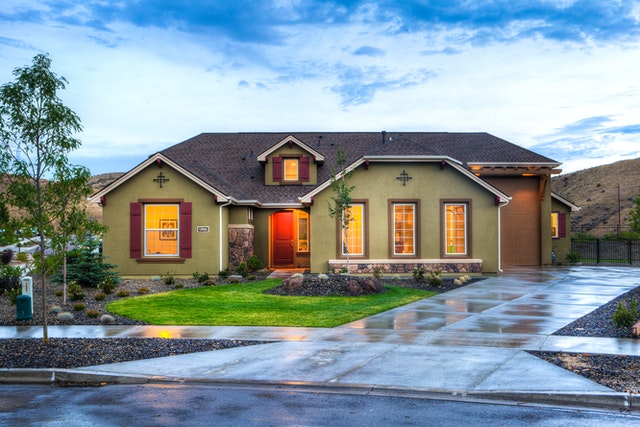
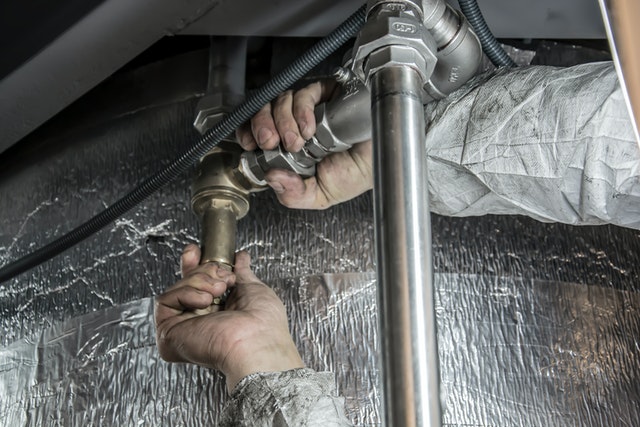
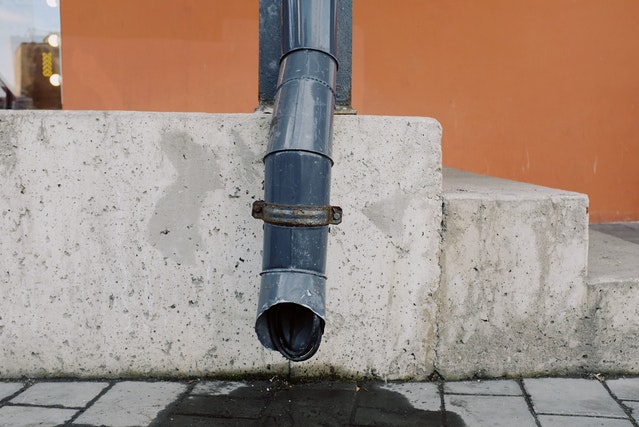

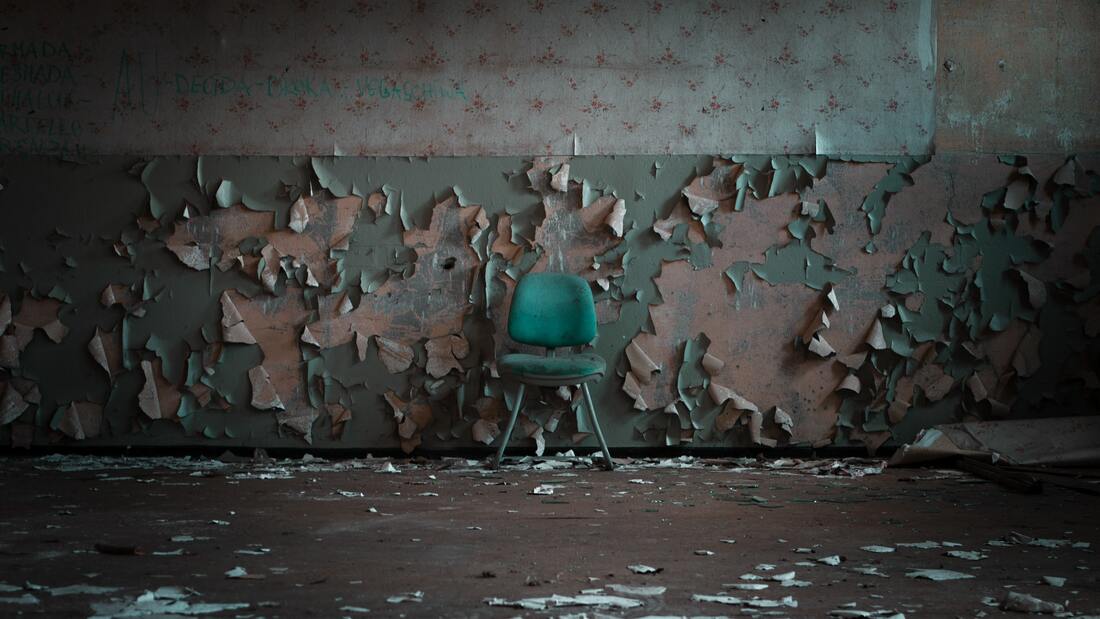



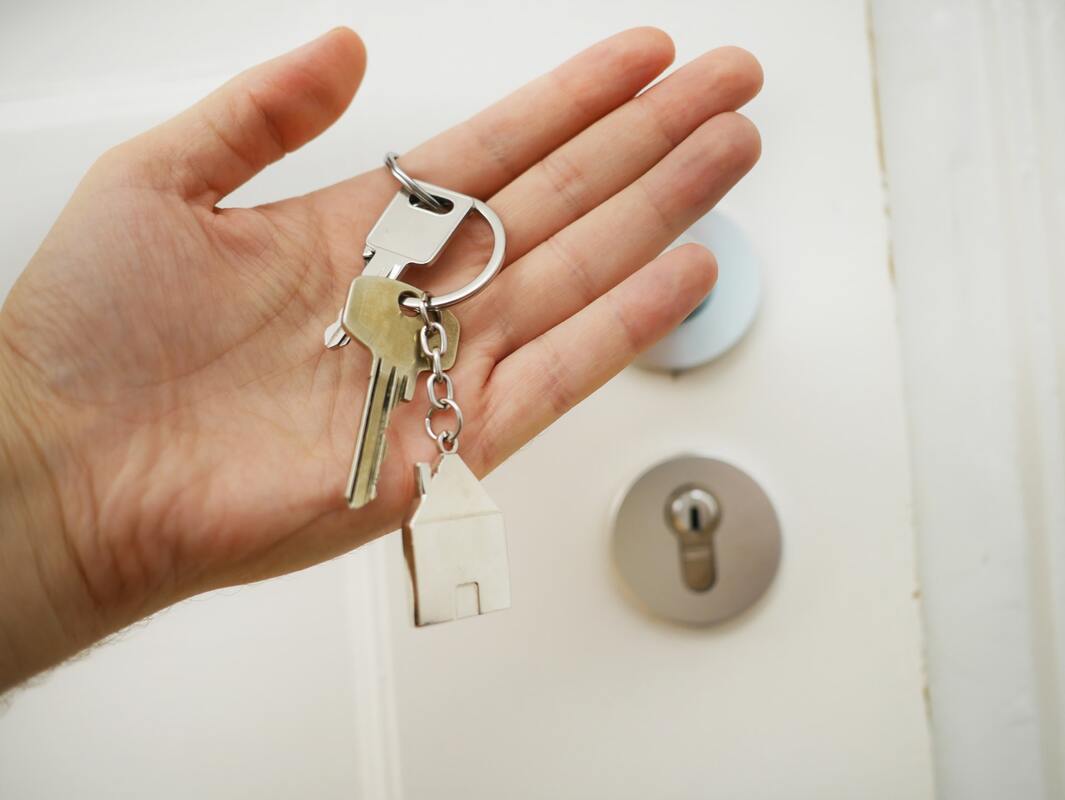
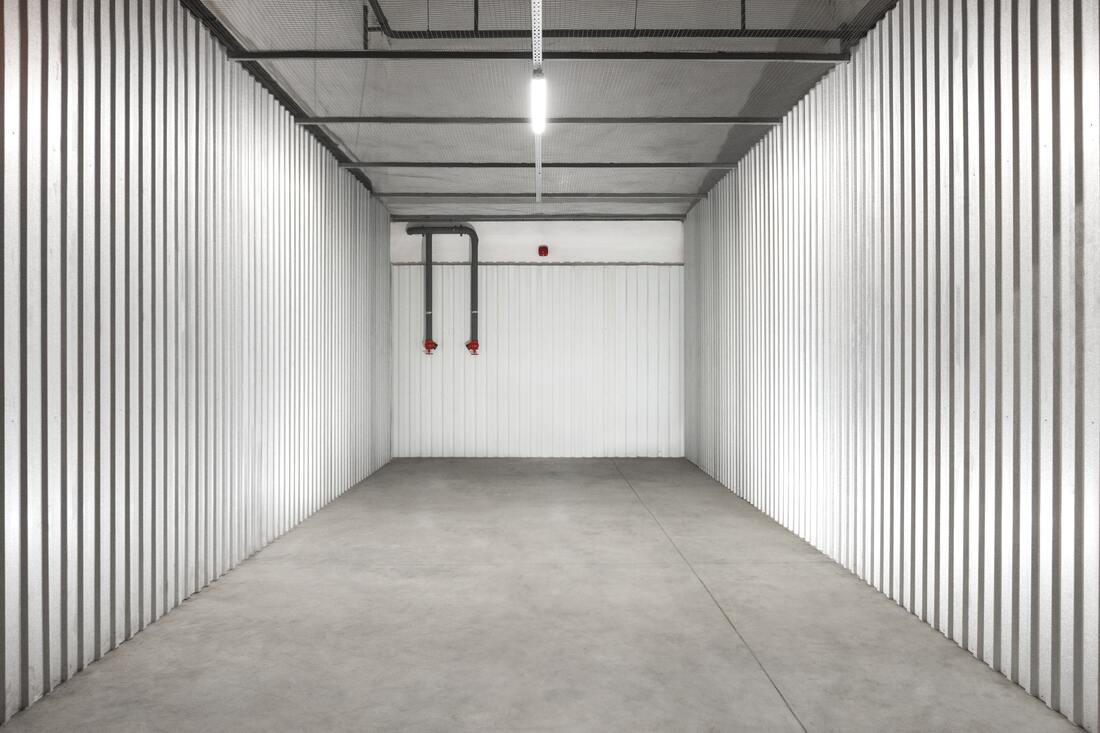

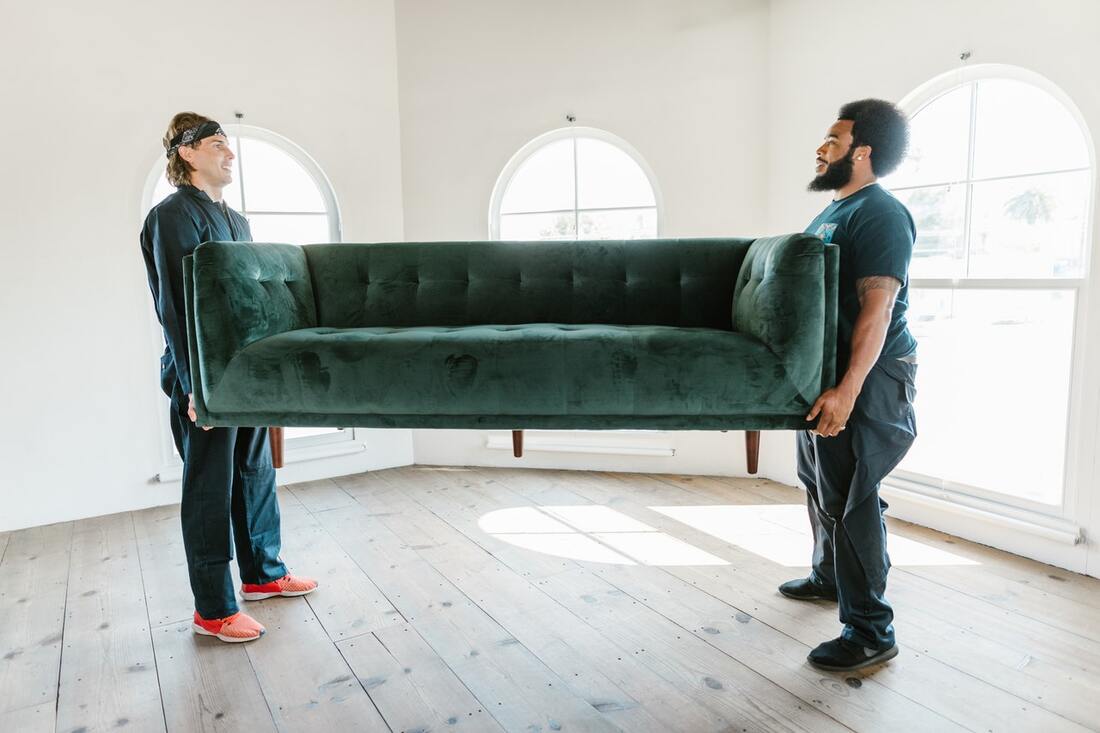



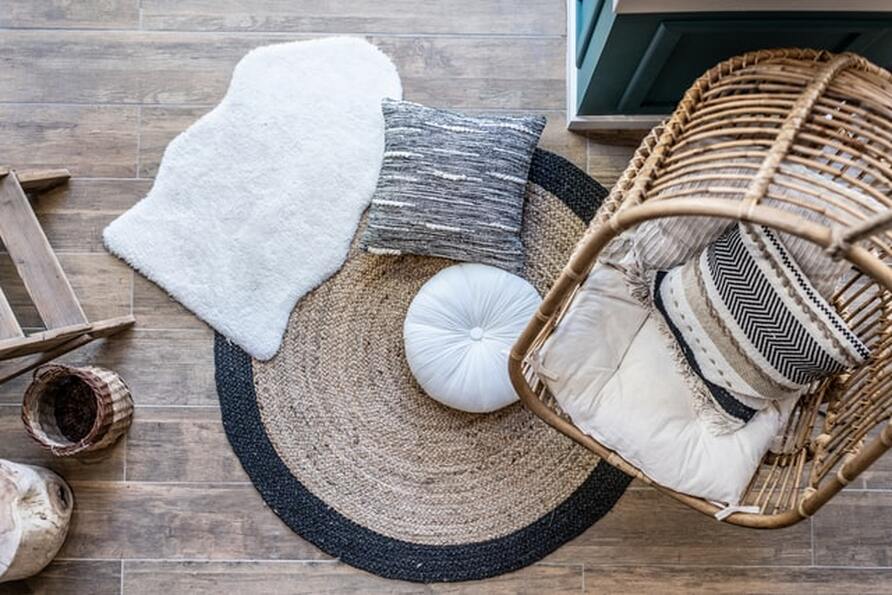






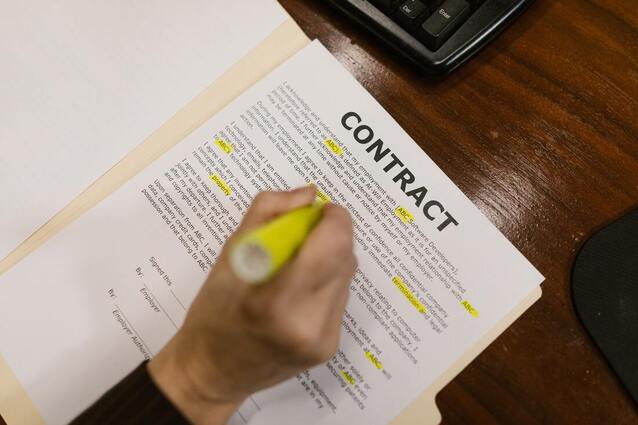







 RSS Feed
RSS Feed

